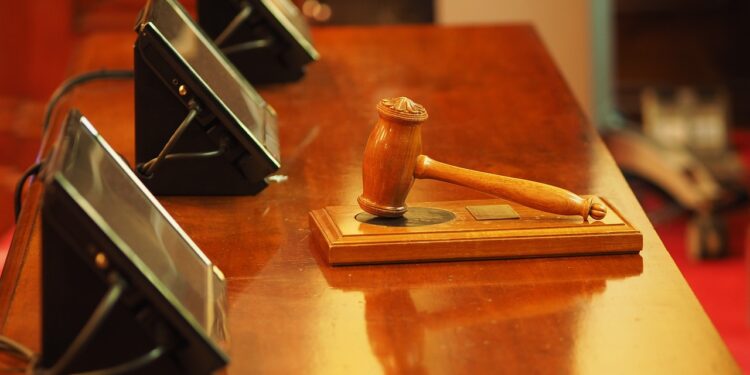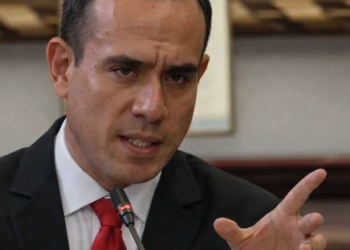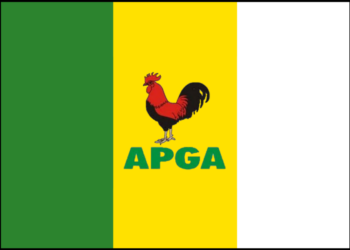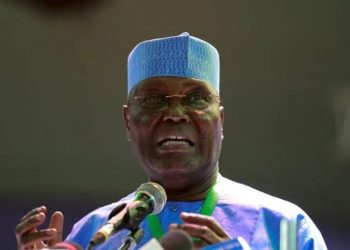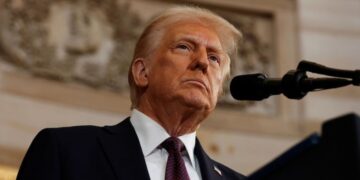Donald Trump’s ascent to the highest sear in the US while still facing dozens of criminal charges has pitched the country into uncharted territory.
Trump has made several histories with his election win and one f them is him being the first president to take office while several criminal cases against him are still pending.
Since this a first, here’s several things that could happen with each of the four legal challenges he faces when he takes office in the White House.
Charge 1: The New York Hush-Money Conviction
Prior to Trump securing a second-term Presidential ticket to the White House, he has already been convicted on 34 felony counts of forging business records in New York.
In May, a jury of New Yorkers pronounced him guilty of the counts in relation to a hush-money payment made to an adult (porn) film star.
But New York Judge, Juan Merchan had rescheduled Trump’s sentencing from September to 26 November, after the elections must have been concluded.

While Judge Merchan could still go forward with the sentencing as earlier planned disregarding Trump’s win, legal practitioners have said that it is unlikely that Trump would be sentenced to time behind bars as an older first-time offender, at least according to former Brooklyn prosecutor Julie Rendelman.
But Rendelman had also added that if he were, his lawyers would appeal the sentence immediately, on the basis that jail time would prevent him from conducing his official duties and that he should remain free until the appeal — a process that could go on for years.
Charge 2: The January 6 Case
In 2023, Jack Smith, a special counsel filed criminal charges against Trump over his efforts to overturn his 2020 election loss to Joe Biden.
For this charge, Trump has pleaded not guilty.
Since then, the case has been undecided especially as the Supreme Court ruled this summer that Trump was somewhat immune from criminal prosecution over official acts committed while serving in office.
But Smith has since refiled his case, arguing Trump’s attempts to overturn the election were not related to his official duties.
A former federal prosecutor, Neama Rahmani, had this to say;
“Since Trump has won, his criminal problems from the case now “go away. It’s well established that a sitting president can’t be prosecuted, so the election fraud case in DC District Court will be dismissed.”
Rahmani also added that if Smith refuses to dismiss the case, Trump can simply get rid of him, as he has promised to do already.
Charge 3: Classified documents case
Special Counsel, Jack Smith is also leading a case against Trump over his reported mishandling of classified documents after he left the White House – another charge Trump has denied.
He is accused of storing vital documents in his Mar-a-Lago home and inhibiting the Justice Department efforts to recover the files.
But Aileen Cannon, the judge assigned to the case who is also a Trump-appointee had dismissed the charges in July, arguing that Smith was improperly appointed by the Justice Department to lead the case.
Smith has appealed the ruling but with Trump all set to take office, the classified documents case now faces the same fate as the election case, according to Rahmani said.
Charge 4: Georgia election case
Trump also faces criminal charges in Georgia due to his efforts to overturn the 2020 election in the state.
This particular case has faced a number of challenges, including efforts to disqualify District Attorney Fani Willis over her ‘inappropriate’ relationship with an attorney she contracted to work on the case.
As it stands, an appeals court is in the process of deviding whether Willis should be allowed to stay on the case or not.
But seeing as Trump has won the presidential seat, the case could face even more delays, and even a dismissal.
One thing’s for sure though, and that is that the case will be paused during Trump’s time in office, according to legal experts.
Trump’s attorney, Steve Sadow haf even said as much when asked by the judge if Trump could still stand trial if elected.
“The answer to that is I believe that under the supremacy clause and his duties as president of the United States, this trial would not take place at all until after he left his term in office,” he was quoted as saying.

